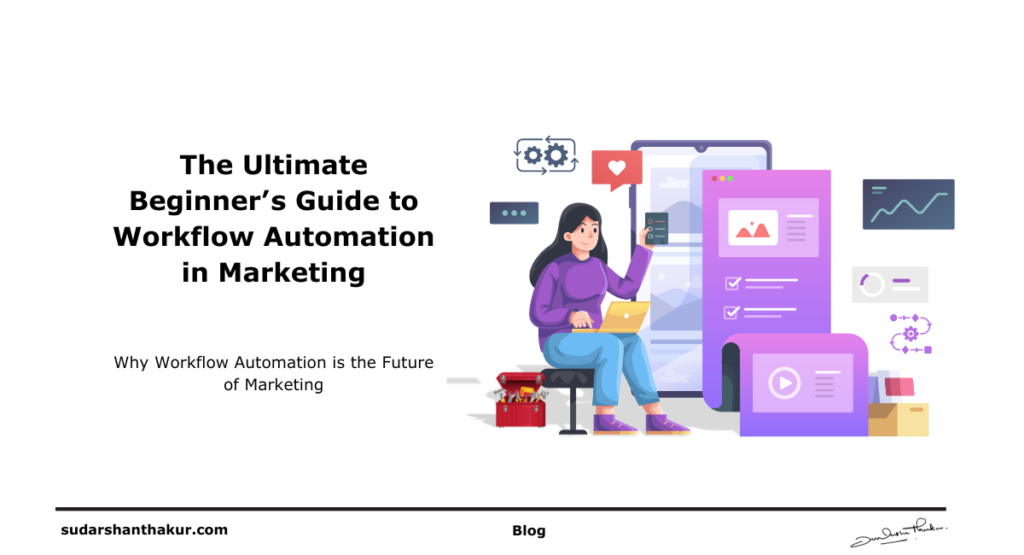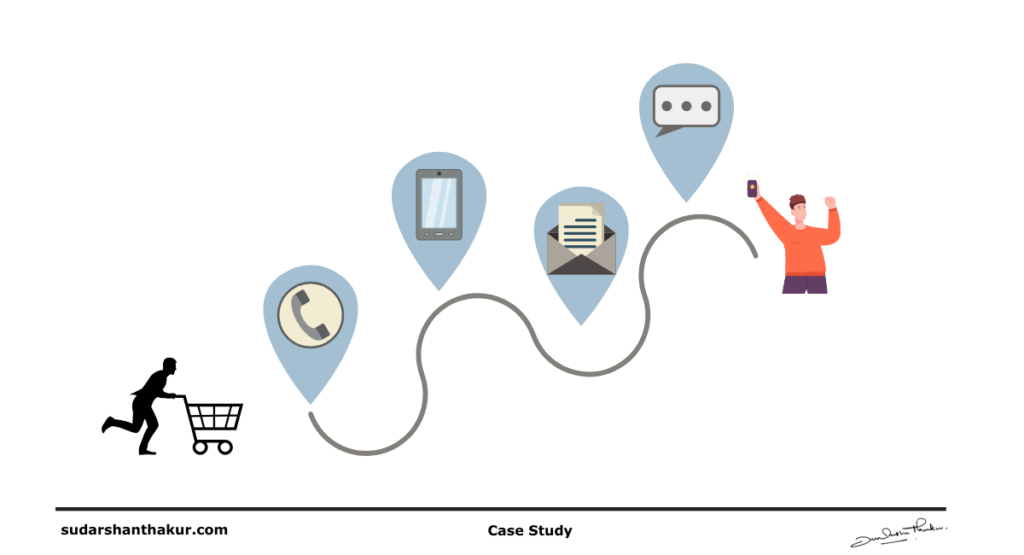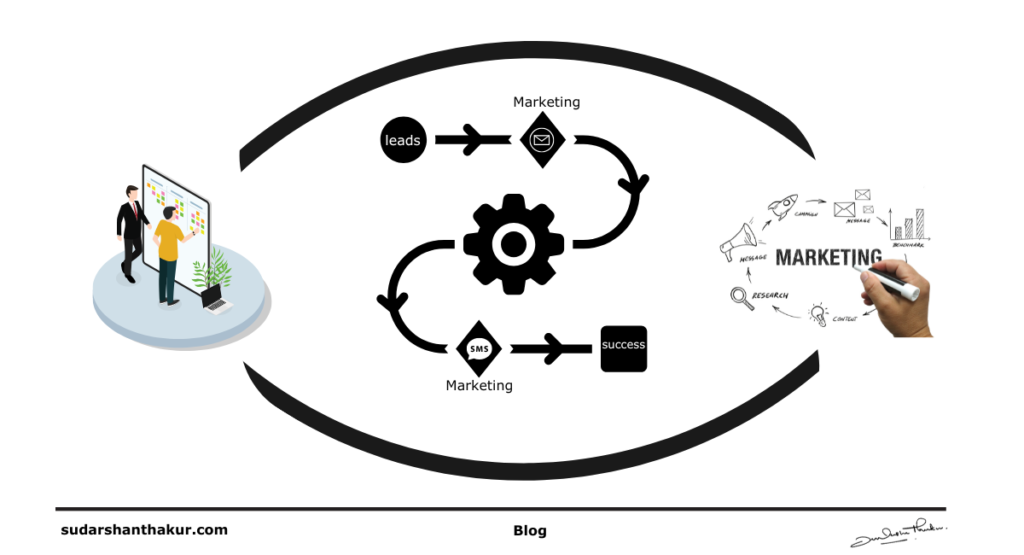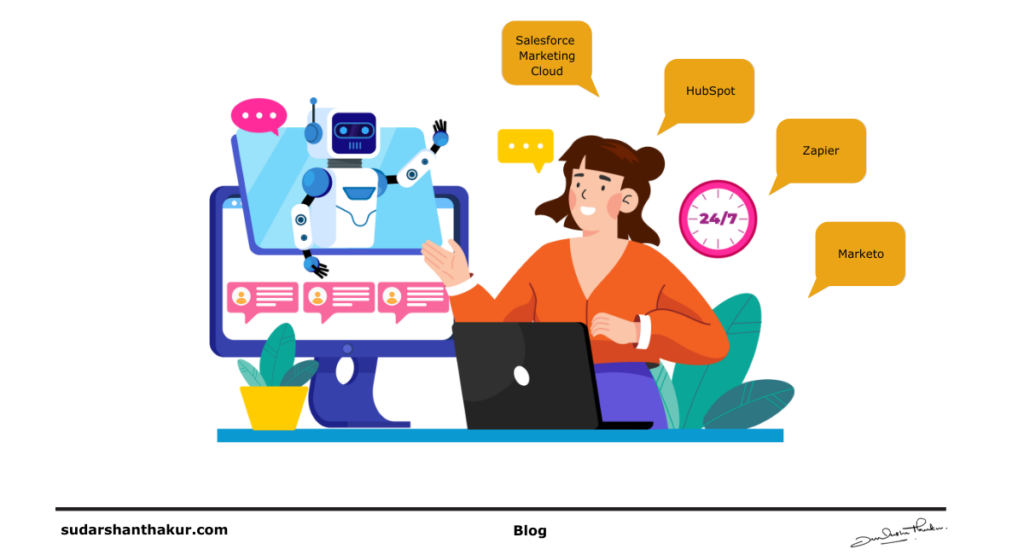The Ultimate Beginner’s Guide to Workflow Automation in Marketing

What is Workflow Automation?
Workflow automation is the process of using technology to perform marketing tasks automatically, reducing manual effort and enhancing efficiency. It involves setting up predefined rules, triggers, and actions across tools to streamline marketing activities like lead generation, nurturing, and customer retention.
Why It Matters:
- Saves time and reduces human errors.
- Enhances scalability by managing multiple campaigns.
- Boosts engagement by delivering timely and personalized interactions.

Benefits of Workflow Automation in Marketing
1. Time Efficiency
Automation eliminates repetitive tasks like sending follow-up emails or posting on social media. This allows teams to focus on creative strategies and innovation.
2. Personalization at Scale
By leveraging data, automation tools can personalize messages for individual customers, improving engagement rates and conversion rates.
3. Improved ROI
Efficient workflows optimize budget utilization and ensure every dollar spent delivers measurable outcomes.
4. Cross-Channel Consistency
Automation ensures that your brand message remains consistent across email, social media, and ads, enhancing brand trust.
Steps to Implement Workflow Automation in Marketing
Step 1: Map Your Marketing Goals
Identify the processes you want to automate, whether it’s lead nurturing, customer onboarding, or re-engagement campaigns.
Step 2: Choose the Right Tools
Select marketing automation platforms like Salesforce Marketing Cloud, HubSpot, or ActiveCampaign that align with your needs.
Step 3: Segment Your Audience
Use segmentation to deliver personalized experiences. Group customers by demographics, behaviors, or buying stage.
Step 4: Create Trigger-Based Workflows
Set up triggers like form submissions or abandoned carts to initiate specific workflows.
Step 5: Test and Optimize
Run A/B tests to refine workflows and improve results. Continuously monitor performance and make adjustments.

Examples of Workflow Automation in Marketing
1. Lead Nurturing
- Trigger: User downloads an eBook.
- Action: Send a thank-you email, followed by educational emails introducing your services.
2. Abandoned Cart Recovery
- Trigger: User adds products to the cart but doesn’t complete the purchase.
- Action: Send a reminder email with a discount offer.
3. Event Registrations
- Trigger: User signs up for a webinar.
- Action: Send confirmation emails, reminders, and follow-up surveys.
Common Mistakes to Avoid
1. Overcomplicating Workflows
Start simple. Complex workflows can confuse your team and lead to errors.
2. Ignoring Data Hygiene
Outdated or incorrect data can derail automation. Regularly clean and update your database.
3. Lack of Personalization
Generic automation can feel robotic. Always personalize where possible.
4. Neglecting Analytics
Automation without tracking is like flying blind. Use analytics to measure success and optimize.
Tools for Workflow Automation
Popular Tools to Explore:
- Salesforce Marketing Cloud: Ideal for enterprise-level automation.
- HubSpot: Perfect for SMBs with user-friendly workflows.
- Zapier: Great for integrating multiple apps.
- Marketo: Offers advanced automation for lead management.

Conclusion: The Power of Workflow Automation
Workflow automation is not just a trend; it’s the future of efficient and impactful marketing. By implementing automation, you can save time, improve customer experience, and boost ROI.
How Can I Help?
As an experienced marketing strategist with expertise in automation tools like Salesforce Marketing Cloud, I can help your company design and implement seamless workflows tailored to your goals. From setting up trigger-based campaigns to optimizing existing processes, I provide end-to-end support to ensure success. Let’s transform your marketing with the power of automation.
Let’s discuss how we can achieve your business goals together.
Want more insights like this? Subscribe to our newsletter and receive actionable marketing strategies, case studies, and expert tips directly in your inbox. Let’s scale your business together, one strategy at a time!
